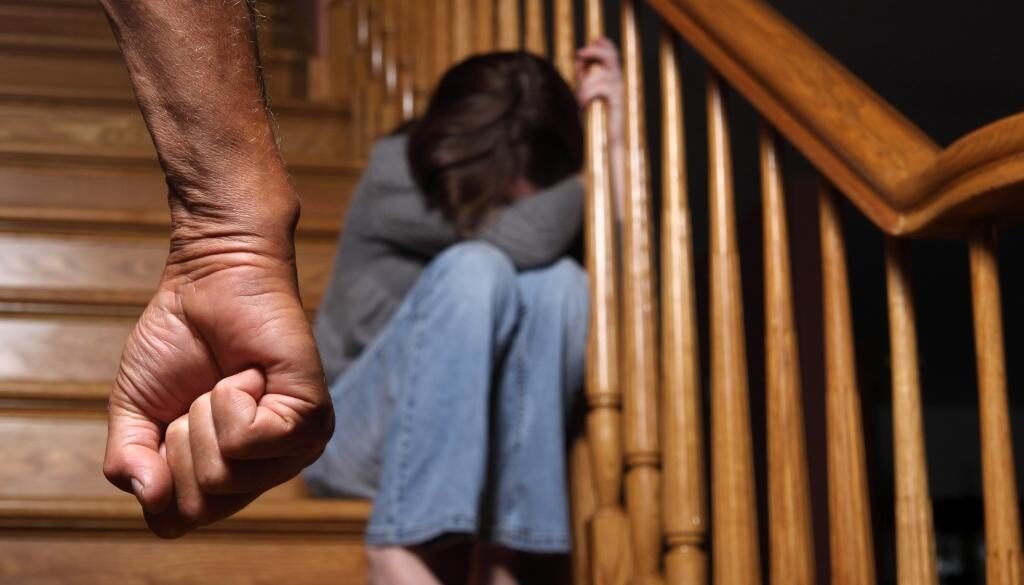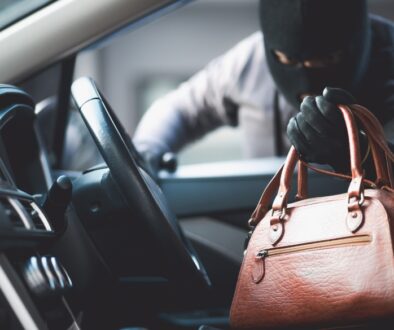When To Call Child Protective Services
Parenthood puts you on alert. This is only natural. You are, after all, in charge of your child’s well-being. And whether through playdates or other parental obligations, you often end up in charge of other people’s kids. As such, there may come a time when you see or hear something that makes you concerned enough for a child’s safety that you consider making an anonymous call to Child Protective Services (CPS) — or, as they’re sometimes called, Social Services or Child and Family Services. The question of when (and for what reasons) to call Child Protective Services is not an easy one, as it carries with it a number of strong implications. But there are times when calling CPS is the right thing to do.
All parents need to be able to recognize the signs of child abuse. More than 700,000 kids are abused annually in the United States, and Child Protection Services is a crucial resource. But how do you know when to call CPS? What if you call Child Protective Services on another parent and your gut instinct was wrong?
The fear of making such a mistake is why many adults often hesitate to call Child Protective Services. A mere accusation can send a family into disrepair. And the last thing anyone wants is to make an incorrect assumption that breaks up a family or pisses off a parent.
Ellen Smith, a Clinical Associate Professor and Child Welfare Training Coordinator at the University of Wisconsin, knows this impulse all too well. “Child Protective Services,” she says, “has the power to intervene in one of the most fundamental relationships that Americans have: the right for parents to make decisions about how to take care of their own children.”
But Smith stressed that calling Child Protective Services is necessary for some situations — and it’s a call that’s much easier less devastating than parents might think.
Here, Smith, along with Ayoka Chapple, a social worker with the Los Angeles County Department of Children and Family Services, walks concerned parents through everything to know about calling CPS on another parent or guardian.
Reasons To Call CPS:
According to Smith, there are three main reasons to call Child Protective Services (CPS).
- Physical abuse. Does the child have signs of injury or do you believe there’s an imminent threat of violence?
- Sexual abuse. Have you seen certain behavioral signs, such as flinching or raising of hands in a defensive manner? Do you suspect some kind of sexually abusive or exploitative behavior?
- Neglect. Does the child in question live in an unlivable environment? Are they left alone for long periods of time without proper care? A more thorough explanation can be found here.
Child Protective Services Aren’t The Police
If you hear or witness something that seems to be putting a child in immediate danger, call the police. Full stop. Per Smith, many callers tend to confuse Child Protective Services with law enforcement. “We’re not in the punishment business,” says Smith. “We’re in the business of keeping kids safe in their homes.” It’s the job of the authority, not CPS, to investigate calls of abuse or neglect.
When Shouldn’t You Call Child Protective Services?
When there is evidence of abuse, you need to contact Child Protective Services immediately. But Chapple says you shouldn’t pick up the phone if your claims don’t meet the above criteria. For instance, just because you suspect a father was drinking doesn’t mean he actually has been abusive to a child. You will need to have something semi-substantial to be of service.
What Legislation Is There About Calling Child Services?
Federal legislation gives a general definition of abuse, but some critical details vary from state to state. While you might not know those details, the trained social worker responding to the call certainly will.
“A common example would be that in some places if a child witnesses domestic violence, that’s considered child abuse and neglect,” says Smith. “In other states, witnessing domestic violence doesn’t constitute child abuse or neglect.” So even if you find out that what you saw doesn’t meet state criteria, you should still call and let social services figure it out.
Red Flags Can Be Misleading, But They Still Need to Be Reported
“A child wearing the same dirty clothes for days on end? That may not necessarily be evidence of neglect,” offers Chapple. “It could just mean their washing machine is broken.” In other words, how can you really know what’s abuse or just a weird circumstance?
Chapple and Smith say it’s not a caller’s job to determine whether abuse or neglect occurred. Rather, their job most often is to provide observations and information to CPS that helps social workers keep an eye on certain families or corroborate other people’s claims. So if you think there’s a legitimate reason to call CPS, do so, and let the experts decide whether the conditions are severe enough to warrant intervention.
A Call to Child Protective Services Doesn’t Always Initiate an Immediate Investigation
Per Chapple, Los Angeles County DCFS receives about 200,000 calls a year but only investigates about 150,000 of them. It’s not because there are too many calls and not enough resources. It’s because the workers are trained professionals who know when a report requires action. They will discuss the case with the caller, explaining whether or not an investigation will follow, and why.
“Maybe it isn’t something that warrants intrusion into people’s lives,” Smith says. “Part of the job of someone answering the phone is to educate the caller.” So calling CPS, even if it doesn’t end in an investigation, can help educate and empower you for the future.
Yes, You Can Place and Anonymous Call to Child Protective Services
By placing a call to the national child abuse hotline or connecting with local resources through state numbers, listed here, you’re telling an authority that you believe someone is unfit to be a parent. And both Chapple and Smith say many cases aren’t reported because callers worry about retaliation from unfit parents who may also be unfit humans. Most states, however, allow those calling child protective services to report cases anonymously. You might have to provide your name and address for a follow-up, but it won’t be disclosed. If the on-call worker fears immediate danger, then local offices dispense help that day.
No, You Won’t Get in Trouble for Calling Child Protective Services
Several states threaten legal repercussions for false alarms about child abuse. But you don’t have to worry about them if you call in good faith — even if you make a report in error. Those rules are in place to discourage people with a grudge from using child services as a weapon. “Typically where we see that is a neighbor or someone who has a vendetta who calls repeatedly to make false allegations,” says Smith. If you’re calling CPS with a serious suspicion that wasn’t actually a problem, you won’t face a penalty.
Source: Fatherly




